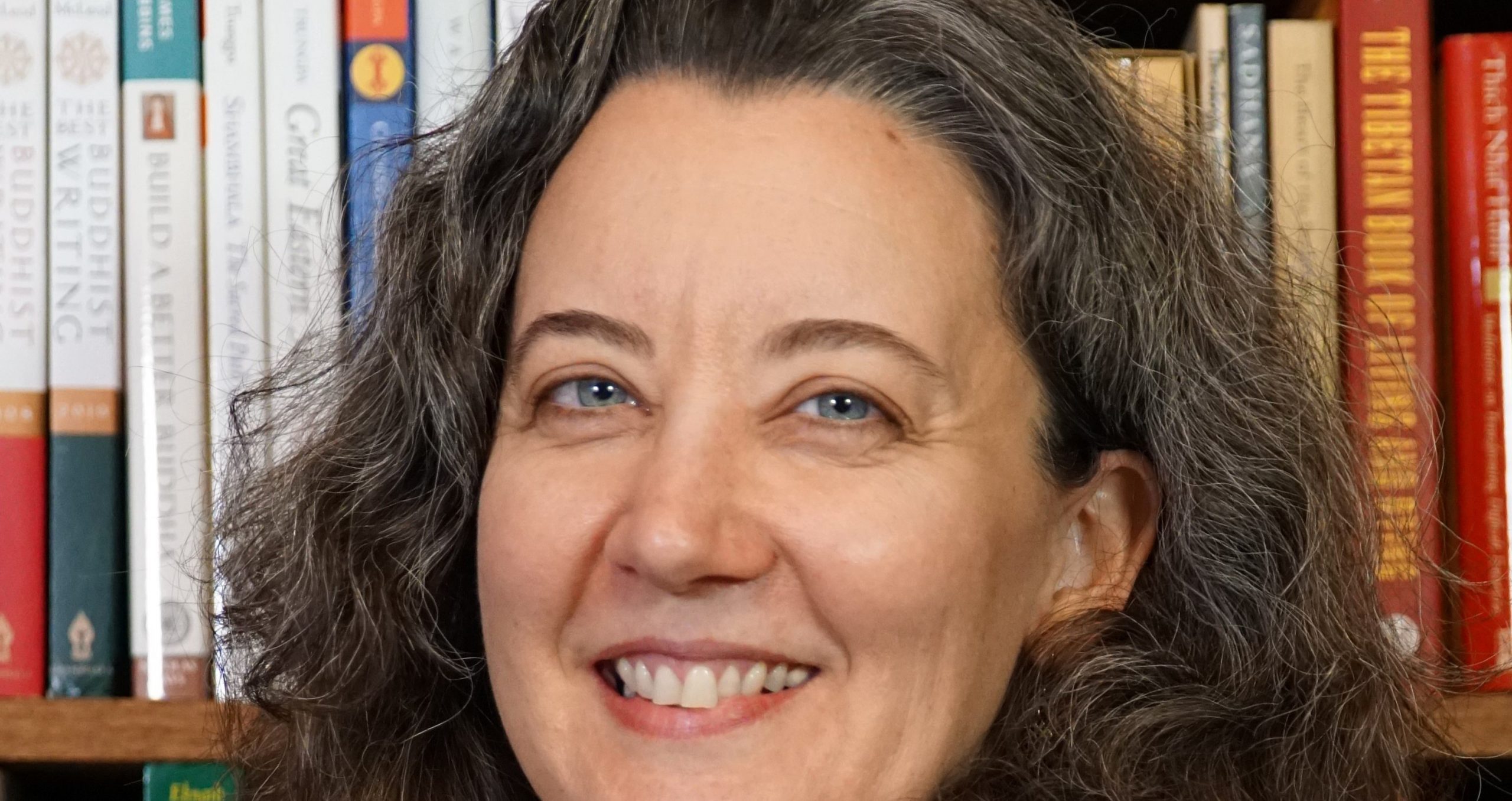
Faculty Focus Friday is a Q&A series that highlights individual faculty members in various academic programs around Spalding University. Today’s featured faculty member is Dr. Dorina Miller Parmenter, Associate Professor of Religious Studies in the School of Liberal Arts. Dr. Parmenter teaches a variety of religious studies courses and has also served as director of Spalding’s Study Abroad in Ireland program. Dr. Parmenter earned her PhD in Religion from Syracuse University. She also holds two master’s degrees in religion from Syracuse, a Master of Arts in Fine Arts from Ball State University and a bachelor’s degree from Central College in Pella, Iowa. (Check out her bio on the School of Liberal Arts’ faculty page.)
What do you like about working and teaching at Spalding?
I like being at a school that values compassion and social justice and recognizes that learning about both of those goals requires broad-based knowledge about history, society and human creativity. I appreciate that the faculty and staff here are always striving to share with Spalding students the best of what they have to offer in order to instill in students the values of the school.
What is your academic specialty, areas of expertise or research?
While I teach a broad range of Religious Studies courses, my research falls in a field called “material religion,” and I try to bring that into all of my classes somehow. It involves looking at how religion is created through and reflected in material objects and embodied practices rather than through abstract ideas. More specifically, my research field is the materiality of the Christian Bible, or how the Bible is a ritual object and material image rather than just a text to be read. My most recent publications have been on miniature Bibles and on the American Evangelical movement called “Bring Your Bible to School Day.” I am currently working on a project on digital Bibles.
Why is the program/department in which you teach a good option for new students to consider as their major?
Surveys of employers consistently indicate that they are looking for employees who are self-motivated and who can think critically and creatively, communicate well, and make ethical judgments. The School of Liberal Arts at Spalding offers several interdisciplinary majors that emphasize the importance of broad-based knowledge, independent thinking and the skills required to address complex social problems. Our majors do not provide specific job training but do allow graduates to enter or advance within the workforce with a social conscience and with the ability to come up with creative solutions to and expressions about whatever might come their way.
What is an interesting thing that you keep in your office?
Five years after I graduated from Central College in Pella, Iowa, when I had just finished a master’s degree in art and was starting a graduate program in religion, I was featured along with some of my college classmates in an issue of our alumni magazine. The cover of one of the books I made in art school engulfs the cover of the publication, with the headline, “Artists Give Credit to the Liberal Arts.” I have that magazine cover framed in my office. Now, several decades later, I am trying to impart that love for the Liberal Arts to Spalding students.
What is the most rewarding part of your job?
I love to see students taking the issues that we are discussing in class and relating them to other classes or their lives outside of the classroom. It is like watching the students build a sculpture out of their knowledge and experiences.
At Spalding, we like to say, “Today is a great day to change the world.” How do you think your role at Spalding is helping you change the world or the world of your students?
I think that studying religion in a college atmosphere where questioning is encouraged and diversity is valued is one of the best ways for students to grow as individuals and as members of local and global communities. This growth helps to break down boundaries and allows for greater respect for and collaboration with others so that oppressive systems can be challenged and the most life-affirming aspects of shared human existence can be utilized to bring about change.